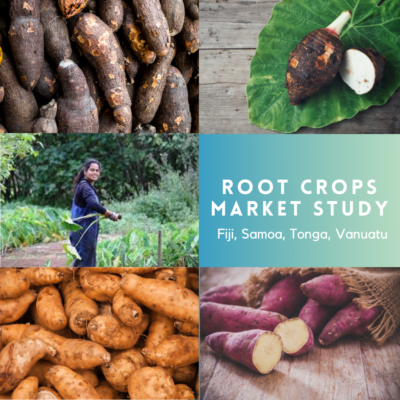ROOT CROPS MARKET STUDY
This study has been completed with support from Pacific Trade and Invest (PTI) and provides an up-to-date review on export market opportunities for tropical root crops. It pulls-together key findings of earlier studies, pays specific attention to the GEDSI dimension and presents comprehensive and up-to-date information on general export trading patterns and trends, combined with country and market-specific supply-side and demand-side market opportunities and constraints. The key importing countries (Australia, New Zealand) are profiled and in-market research findings presented. Commentary on the US market is also provided. The study is intended to provide an evidence-base to guide decision-making and investment by producers, exporters, service providers, policy-makers and development partners.
Root crops have already been identified as a priority sector for support in Fiji, Samoa and Tonga and, more recently, Vanuatu. This study will be used to assess the continuing export market opportunity that root crops present , the efficiency with which the market system in exporting countries is capturing this opportunity, and where there may be opportunities to improve market system performance.

